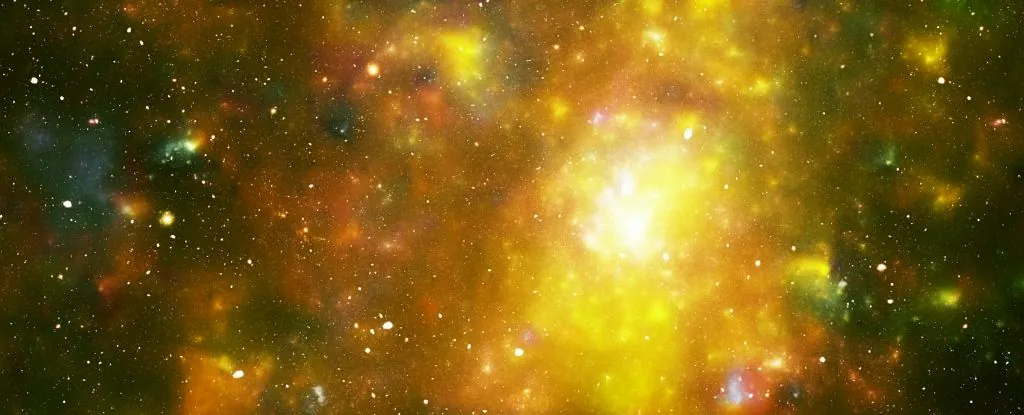
Could Ghost Particles Unlock a Gold Rush in Neutron Star Collisions?
2025-09-22
Author: Wei
An astonishing new simulation could change our understanding of gold production in the universe! Physicists have uncovered how the mysterious particles known as neutrinos play a pivotal role during neutron star mergers, potentially leading to a surge in the creation of heavy elements like gold and platinum.
For the first time ever, researchers modeled the flavor transformations of neutrinos during these catastrophic cosmic events. Their groundbreaking findings reveal that altering these neutrino flavors can significantly impact the aftermath of neutron star collisions, including the production of precious metals.
In fact, eliminating neutrino transformations from simulations resulted in a staggering drop in heavy element production—by as much as tenfold! This revelation raises the stakes in our quest to understand the origins of rare elements in our universe.
"Previous models failed to incorporate the change in neutrino flavors during these mergers," explains physicist Yi Qiu from The Pennsylvania State University. "This oversight was largely due to the extreme difficulty in capturing such rapid processes, coupled with our limited understanding of the underlying physics until recent advancements. But now, our simulations show that the mixing of neutrinos has far-reaching consequences on the merger’s outcomes."
Dubbed 'ghost particles' for their ethereal qualities, neutrinos exist in three different forms: electron, muon, and tau. These particles can oscillate between flavors as they travel, and under the intense conditions of neutron star collisions, these transformations may be critically important.
Neutron stars are some of the densest objects in the cosmos, and researchers focused on how electron-type neutrinos convert into muon-type neutrinos during these violent events. Such transformations could alter the availability of neutrons in the system, thus enhancing the r-process, which is responsible for generating heavy elements like gold, uranium, and strontium.
Physicist David Radice elaborates, "Electron neutrinos can convert neutrons into protons and electrons, while muon neutrinos cannot. This flavor conversion directly influences the neutron supply, affecting the formation of heavy metals and rare earth elements significantly."
The implications of these findings are enormous! Not only could accounting for neutrino mixing increase heavy element production by up to a factor of ten, but it might also enhance the brightness of post-merger gravitational waves by as much as 20 percent.
Yet, many questions remain unanswered. The precise mechanisms and timing of neutrino transformations in neutron star mergers are still shrouded in mystery. Researchers believe that more refined simulations could unveil these enigmas.
"Our current insights suggest that these transformations are highly likely. If we consider them in future models, the effects could be monumental," concludes Qiu.


 Brasil (PT)
Brasil (PT)
 Canada (EN)
Canada (EN)
 Chile (ES)
Chile (ES)
 Česko (CS)
Česko (CS)
 대한민국 (KO)
대한민국 (KO)
 España (ES)
España (ES)
 France (FR)
France (FR)
 Hong Kong (EN)
Hong Kong (EN)
 Italia (IT)
Italia (IT)
 日本 (JA)
日本 (JA)
 Magyarország (HU)
Magyarország (HU)
 Norge (NO)
Norge (NO)
 Polska (PL)
Polska (PL)
 Schweiz (DE)
Schweiz (DE)
 Singapore (EN)
Singapore (EN)
 Sverige (SV)
Sverige (SV)
 Suomi (FI)
Suomi (FI)
 Türkiye (TR)
Türkiye (TR)
 الإمارات العربية المتحدة (AR)
الإمارات العربية المتحدة (AR)